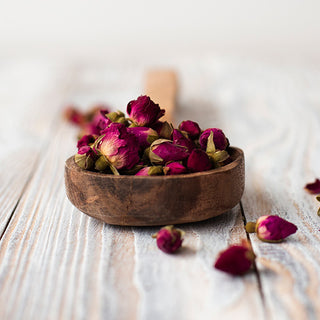Unveiling the Mysteries of Vata Dosha: The Energetic Essence in Ayurveda
Hello there, dear readers! As an Ayurvedic practitioner, I'm excited to take you on a journey to explore one of the most captivating elements in Ayurveda – Vata Dosha. In this article, we'll embark on a fascinating voyage, unraveling the secrets of Vata Dosha in a simple, clear, and informative manner. So, let's dive right in!
What is Vata Dosha?
Vata Dosha is one of the three fundamental energies in Ayurveda, alongside Pitta and Kapha. It's often described as the "wind" or "air" energy, characterized by qualities like mobility, lightness, and creativity. Vata is responsible for various bodily functions and plays a significant role in our overall well-being.
The Qualities of Vata Dosha
Vata Dosha is marked by several key qualities:- Mobility: Vata's primary characteristic is movement. It governs all bodily movements, from blinking our eyes to the circulation of blood and the flow of thoughts in our minds.
- Lightness: Vata imparts a sense of lightness to our bodies and minds. It's the force behind our enthusiasm, creativity, and curiosity.
- Coldness: Vata is often associated with coldness. It can lead to colder hands and feet, especially in individuals with a Vata constitution.
- Dryness: This Dosha can cause dry skin, hair, and even constipation when imbalanced.
- Roughness: When Vata is aggravated, it can result in rough and uneven skin texture.
- Irregularity: Vata's inherent nature is unpredictable, which can lead to irregular bodily functions if not in balance.
The Role of Vata Dosha
Vata Dosha is the commander-in-chief of all movements and transformations within the body. It governs activities like breathing, circulation, elimination, and the transmission of nerve impulses. It's also responsible for our ability to adapt to change, think creatively, and communicate effectively.
Vata Dosha and Imbalances
While Vata Dosha is vital for our well-being, an excess or imbalance can lead to various health issues. Common symptoms of Vata imbalance include anxiety, insomnia, digestive problems, and joint pain. It can also manifest as mental restlessness, forgetfulness, and a tendency to overthink.
What Causes Vata Imbalance?
Several factors can contribute to Vata imbalance, such as:- Erratic Routine: Irregular daily routines, like irregular meal times or erratic sleep patterns, can disrupt Vata balance.
- Stress: High-stress levels can push Vata out of harmony, as it tends to amplify the mind's anxious and scattered qualities.
- Cold Weather: Exposure to cold, dry climates can aggravate Vata, leading to dry skin and respiratory issues.
- Inadequate Nutrition: Skipping meals or eating too many dry and raw foods can exacerbate Vata imbalance.
Balancing Vata Dosha
The good news is that Ayurveda provides practical and natural ways to balance Vata Dosha and promote overall well-being. Here are some key strategies:
Warm and Nourishing Diet
Favor warm, nourishing foods that provide comfort to your body and mind. Opt for cooked grains, soups, stews, and herbal teas. Include healthy fats like ghee (clarified butter) and sesame oil, which help combat dryness.
Routine and Regularity
Establish a daily routine that includes regular mealtimes, exercise, and sleep. Consistency is the key to pacifying Vata's erratic nature.
Stay Warm
Keep yourself warm, especially in colder weather. Dress in layers, sip on warm beverages, and indulge in warm oil massages or baths to combat coldness.
Mindfulness and Stress Management
Engage in relaxation techniques like meditation, deep breathing, and yoga to calm the restless mind that often accompanies Vata imbalance.
Herbal Support
Ayurvedic herbs like Ashwagandha and Shatavari can help soothe and balance Vata Dosha. You can consult Art of Vedas Ayurvedic doctor before incorporating herbs into your routine. The consultation is free of charge and the doctor guides you on how you can add the herbs in your diet.




